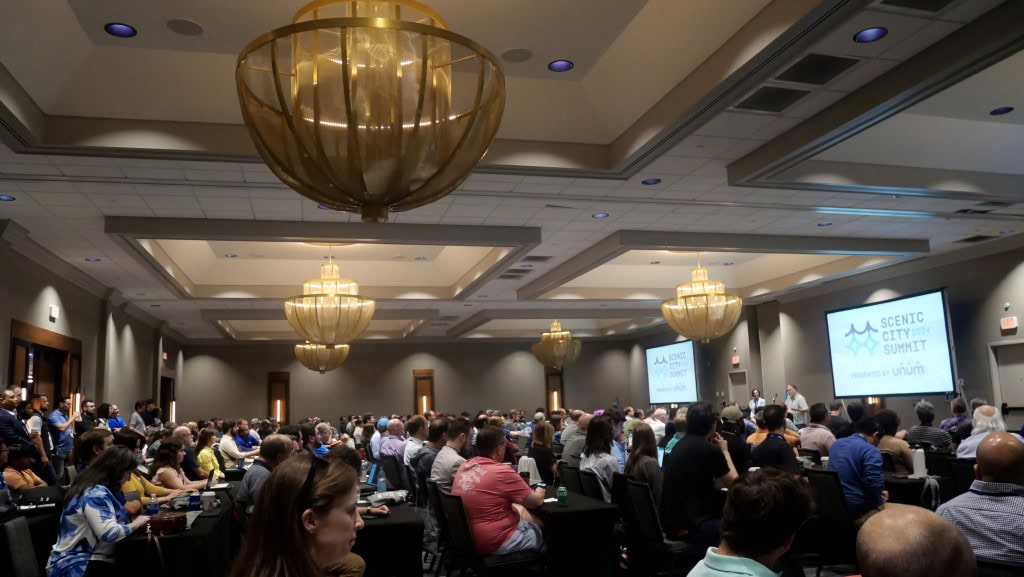Wow, so far in this series, I have interviewed some very good friends, and some truly excellent writers (and usually both), but today, following on the heels of Jason Strate, we are going to hit someone whose name is synonymous with community, a person who really needs no introduction. According to Bing, Kevin Kline (@kekline) is the most important Kevin Kline on Twitter (though it clearly could be due to my typical searches, I am giving him the benefit of the doubt… here try it yourself: http://www.bing.com/search?q=kevin+kline+twitter. Apparently there is an actor and hockey player by the same name?)
I first remember meeting Kevin personally at pre-flood Opry Mills mall in Nashville, not terribly long after he had received his first MVP award. He was president of PASS back then, and I was kind of in awe (like most newbies are of MVPs… doesn’t last :). For the life of me, the only thing I remember about our conversation was a discussion of Elvis Costello’s (whom I am a big fan) spouse (Diana Krall, who I had little knowledge of at the time but am starting to like due to her recent album that I am listening to as I write this…and no, not for the cover picture either).
Kevin has had a great side career as a writer, having written one of the most influential SQL books of all times, SQL In a Nutshell. His list of accomplishments is long, and I am quite proud to have had his name on the cover of two editions of my Relational Database Design books. He and I are also officers for the Nashville SQL Server User Group (along with Joe Webb and Tamera Clark, to name a few others…), but I seem to run into him more at PASS events (the Summit, last year’s rally, and SQL Saturday events all of the time) more than in Nashville because he is a well sought after speaker, and as the Director of Engineering Services for SQL Sentry (a trusted brand, for sure, and hopefully the source of a few more entries in this series!), he is always going. In fact, I am sending him these questions just now so he can do the interview while he is on a trip…
——————————————
So, after that long introduction of a person who needs none, I have a few questions for you:
1. I know it has been quite a while now, but there was a point in time when you didn’t have a blog, didn’t tweet, and had no public presence whatsoever. And then, one day, you made the decision to put yourself out there. What prompted you to get started writing, and what was the first public work you produced?
There’s a bit of a funny story to how I got started writing, which was way back in the stone age a decade before the advent of blogging or social media. Way back in the early 1990’s, I wasn’t very far out of university and still aspired to go back and get a master’s degree. As I studied the curriculum requirements, I noticed that I could complete the degree two semesters earlier by taking the thesis track rather than the coursework track. Shortcut discovered! I was already working at that time as a systems analyst on VAX/VMS Oracle projects and decided to write a thesis on an exciting new technology and how it would impact an industry that predominantly built applications around character-mode systems – the Graphic User Interface! Yes, that’s how long ago we’re talking. While mapping out the material I planned to write, I also encountered a call for authors in the back of one of my favorite magazines of the time, Datamation. I thought “Why not pitch the thesis as a book and maybe achieve two good things with one set of hard work?” I was surprised that book proposal was accepted. I finished the book, but sadly never finished my master’s degree.
2. As a kind of a follow on question: As a technical person, I know that before I wrote my first book the longest thing I had written professionally was a resignation letter from my previous job. Did you have any background in school, or even hobby that helped you as you wrote your first article, book?
I’d wanted to be a writer from a young age. I entered essay contests in middle school and high school and I edited the high school literary magazine. Approaching graduation, I remember a fateful night in which I was trying to figure out what to do with my life, literally. On a sheet of loose leaf paper, I’d written all of the things I enjoyed doing in a column on the left and on the right, a column of careers that I felt like I could earn a decent living that I wouldn’t hate. Let me be honest, I was poor, from a poor family, and dead tired of poverty. So I crossed off the list a number of the careers that I knew I would enjoy, like writing or journalism, but wouldn’t likely provide the standard of living I was aiming for. I said to myself “If it was meant to be, the opportunities will come”. I had no notion that it might be a true statement.
3. We all have influencers that affect our trajectory as a writer. It may be a teacher who told you that you had great potential, or another writer who impressed you that you wanted to be like? Or perhaps on the other end of the spectrum it was a teacher who told you that you were too stupid to write well enough to spell your own name, much less have people one day impressed with your writing? Who were your influences that stand out as essential parts of your journey to the level of writer you have become?
Great question. The biggest positive influence as a mentor was my older brother, Dan, who I later brought in as a co-author on SQL in a Nutshell. He was an English and History major in college, worked as a technical writer, and eventually became a full professor with a PhD in medieval studies. But at the time I was coming up, he was the one who coached me through writing my first essay on an old 8-bit Kaypro. I won that essay contest because of his help. And he’s improved my writing countless times since then. Another big influence was my favorite college history professor, Dr. Richard Gerberding, who helped me hone my analytical skills when writing term papers and the like.
4. What would you say has been your greatest success story as a writer, even if it was not a commercial success? And conversely, have there been any projects that were just complete disasters that you probably could have looked back and realized that before you got started?
In one way of looking at it, I’d say that my greatest success was writing that very first book Oracle CDE (Cooperative Development Environment). It was not a good book. It wasn’t thorough. It wasn’t clear enough. It didn’t provide enough realistic or well-considered examples. And as a result, I got what I deserved. It didn’t sell well. It didn’t earn a penny more than the royalty advance. It took 9 months to complete, consuming about 600 hours of my time, and since this was the days before email, it had to be printed and mailed to the publisher. It weight 9 lbs at completion – I felt like I’d birthed a baby when I put that manuscript into the post.
But, like a lot of runners will tell you, the point that their lives changed wasn’t when they crossed the finish line. The point at which my life changes is when I made the commitment to write the book and somehow found the determination to see it through to the end. Although I was in my early 20’s at the time, it was a very formative experience that changed me in many ways. And, like a lot of first tries accomplished with good intentions, it gave me the inspiration to keep trying and to do better. I know a lot of great cooks whose first meal was a disaster, but getting into the kitchen and turning on the burner was the scariest part for them. It was the same for me. And, thankfully, additional opportunities were right around the corner.
5. Assume a time machine has been created, and you are allowed to go back in time to speak to a group of potential writers, in which you and I are in attendance. What would you tell "past us", and do you think that your advice would change where you and I are in our careers now? Like would you tell yourself that one day you would be sitting here for a rather long period of time answering interview questions and not getting paid for it, instead of doing something else?
My time machine advice might sound a little weird to a group of writers, but I hope it makes some sense. I’d say something like this:
“Writing is many things. For one thing, it’s hard work. If you’ve never done hard things, you won’t be a writer. If you quit the soccer team after the first kicked shin or gave up on the band because marching season was too hot or never finished a guitar lesson because your fingertips were sore, you’re probably never going to be a writer. It’s hard. If you want to be a writer, start by doing hard things in your life and seeing them through to the end – whether it’s the bitter end or the happy one. For another, writing is learned by observation and experience. If you don’t read a lot of different writers, you won’t be a writer. If you can’t stomach poetry or hate classic literature or don’t enjoy wading through a mass of words written by other human beings, you will probably hate creating your own mass of words and, when you do write, it won’t be any good. Finally, writing is storytelling, and storytelling is the relating of human experiences. So get out and dive in to a variety of human experiences. Retell the good stories of your grandparents and parents. How would you tell it differently? Walk in the grass in bare feet. How would you describe that? See a sad movie. How would you relate that experience? Take a pottery class. What did the clay feel like in your hands? Or, try this one which really happened to me on one of my first international trips, explain what a donut is to a person who’s never even seen a donut. If you’ve had a donut, your mouth is probably watering right now just thinking about your favorite one. You can recall its texture in your fingers right now, just a few inches from your mouth, still warm from the baker’s oven. Its fragrance beckons you to enjoy the explosion of flavors the signals safe and home and mornings at Sunday School. (At least, that’s what it does in my mind). Now, how do you make that moment come alive for someone sitting on the other side of the page from you? You have to experience it. And once you’ve experienced it, write it.”
6. Finally, beyond the "how" questions, now the big one that defines the interview series. Why do you do write?
I can’t deny that when I first started writing it was entirely for mercenary reasons. I married early, started a family early, and accrued all the bills that go along with that at an early age. I needed to find ways to supplement my income and, at least back in the 1990’s, writing made a lot more money than working part-time at the hardware store. But I still write a lot today, now that writing doesn’t pay more than working part-time at the hardware store. At least when it comes to technical writing, I find myself attracted to two things about the writing experience. One, I like to understand things that interest me as fully as I can, and there’s no better way to do that than to try to teach others about an important topic. Of course, we’ve all had bad teachers who don’t care about their topic. But good teachers want to know what the heck they’re talking about and, for me, writing as if I were trying to teach the topic is a great way to actually learn the topic more thoroughly. Two, I love sharing stories. On Twitter, I often share interesting links because it was something or from someone who I’ve enjoyed reading myself.
Bonus Question: Are there any projects coming up that you would like to tell people about?
I’ve been writing mostly hard technology content over the years. But as I rose in my career to director-level and ascended to presidency of PASS nearly 10 years ago, I began to formalize my thoughts about leadership, influence, and professional skills specifically for IT professionals. It’s a new story I have to tell, taking those leadership and professionalism skills I learned at that time and turning them into lessons we all can use as IT professionals. It’s a common stereotype in our industry that “that IT guy” is an arrogant loner who hangs out in a darkened basement and rolls his eyes with an exasperated sigh whenever s/he’s asked even a simple question. Do you know that person or work with them or for them? I, along with my partner Joe Webb, have a number of private corporate clients. And I’ve started a website called http://ForITPros.com where I’m posting a lot of the things I’m learning. I’ve also gotten the opportunity to write for a couple IT leadership-related websites, but just haven’t made it a priority for now.
I’ve also been doing a lot of fun, new creative things at SQL Sentry. I’ve started a monthly newsletter there and, although I haven’t conquered the learning curve yet, doing a lot of video recording for our upcoming website http://SQLSentry.TV. I’ll be talking a lot about plain ol’ SQL and query writing. And I’m also writing new example-based content on SQL coding with the team at http://SQLTeam, specifically at http://Examples.SQLTeam.com. So I hope to see you on there, Louis, providing good feedback as you always do.
——————————————
Reading these interviews, I am starting to notice a rather big divide in writing “artiness” between those people who want to be writers, and those who do some writing. I know I tend away from the artiness usually, because it is not natural to me. I am not exactly sure what the amount of artiness really means, or if it really means anything in the technical writing arena. For example, Kevin’s answer to #5 is extremely good, moving even. His advice is great of technical writers, but it is presented in a manner that is beyond that of someone who is a technical writer spewing facts. I wonder how that affects his writing? I mean, there is a big difference between technical writing, telling someone how to eat a donut, and telling them why they need to eat it, and then convincing them to eat it. Bearing in mind that donuts are not inherently good for you. It is fairly easy to tell someone that duplicate data is bad, but a lard laden sugar holder is a known evil. Plus, I know my editor would have cut any sentence with language like “explosion of flavors” out pretty quick as not being “necessary”.
Along the lines of reading others, that can be difficult, but worth it. I have been reading the latest edition of Database Design for Mere Mortals, by Michael Hernandez of late to see how he tackles the subject of database design While I feel like our books so far agree on much of the material, but our approaches and even terminology are very different in places. I would suggest you be careful to not read others books on the subject you are writing on simultaneously to avoid plagiarism. If you want to stop being a writer, getting caught plagiarizing is a very good way to do so.
Wow, ok, next up is Laerte Junior, who is an active writer about PowerShell…





Load comments